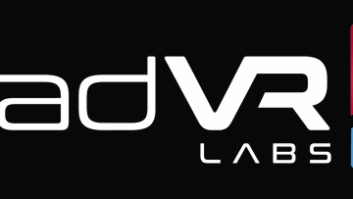For the past 70 years, U.S. consumer marketers have embraced the concept of “generations.” Generations categorize groups of people by their age and collective life experiences, as well as their likes, dislikes, and attitudes. Frequently targeted generations include the Greatest Generation (a.k.a., the Silent Generations or seniors), to baby boomers, gen-x-ers, millennials and boomlets (born after 2001).
But the times are changing. A more meaningful way to define and name generations — particularly from a consumer electronics perspective — might be based not on traditional demographics, but rather on the adoption of new technologies and the commonality of the lifestyles it fuels. And to be really meaningful, these definitions should be directly linked to the technology catalysts that drive common generational behavior.
That said, I believe that we are entering the “64-Bit Tablet Generation.” This is a new generation of consumer technology users who will infuse information into their personal and professional lives like never before, powered by access to increasingly powerful and dramatically more affordable tablets of various form factors. The availability of 64-bit technology, particularly ARM’s Cortex-A50 processor family, to SoC solution providers like Actions Semiconductor, is allowing white box tablet manufacturers to deliver a wide range of innovative new tablets.
The first generation of tablets with 32-bit processors dramatically changed the way that many people, regardless of age, accessed and interacted with data. However, the 64-bit Tablet Generation has the potential to supercharge the tablet revolution. Here’s why:
- Impressive White Box Tablets: New 64-bit processors are being rapidly integrated into a wide range of new tablets, providing the large and small CE companies the opportunity to move quickly into new markets. U.S. consumers will begin seeing new tablets from well-known CE brands as well as new tablet providers seeking to fill a wide range of market opportunities including early education, applications for seniors, sport-specific tablets, gaming, and home automation, to name just a few.
- More Intensive Applications: 64-bit technology will enable greater memory addressability beyond 4GB, therefore allowing memory-intensive applications and operating systems to prevail in upcoming tablets. This will allow the existing tablet market to continue to expand at the high-end of the market. And, as pricing for 64-bit based tablets becomes increasingly competitive, the upgrade tablet market has the potential to explode.
- Significant Security: Tablet security is a key reason for the move to 64-bit processing. For example, Apple’s A7 processor is said to be the driving force behind the iPhone 5s’ fingerprint reading capabilities. Think of the need for better security in large vertical markets like financial services or health care. Increased security of tablets offers an enormous opportunity for savvy financial service providers. It’s quite possible that in the not too distant future we might see banks or brokerage firms providing tablets to high-end customers or active traders to securely manage their accounts — keeping their financial information separate from their other less sensitive personal information like email or social-networking accounts.
- Larger, More Complex Systems: The 64-bit tablet generation will enable app and operating system developers to create larger, more complex products, such as games with extremely detailed imagery that require a very robust processing solution. If “serious” gamers — think “World of Warcraft”-class games — make the move in large numbers to new 64-bit tablets, the tablet world might never be the same.
- Better Tablet Productivity:And, of course there’s the business user — still a relatively untapped tablet opportunity. The additional computing power produced with 64-bit processors, coupled with more system memory opens up the door to run desktop-class applications on tablets and even smaller devices that would normally be constrained to PCs. This could enable OEMs and developers alike to produce safer tablets, more complex apps and programs, and open the door to tablets with more productivity-based features.
If you’ve read this far, I’d venture to guess that you either agree with my premise, or think its nonsense. Either way, I’d be interested in hearing your thoughts.
Robert Wang is sales and marketing senior VP at Actions Semiconductor.












